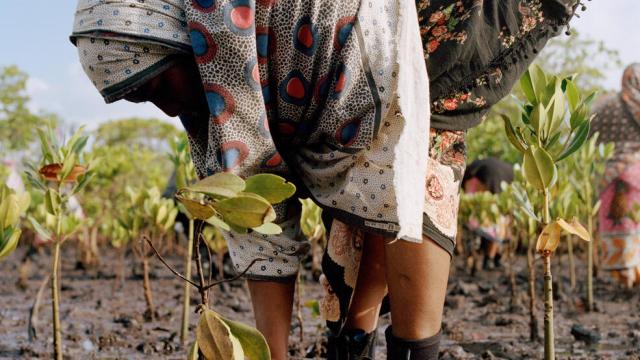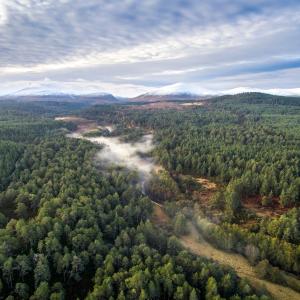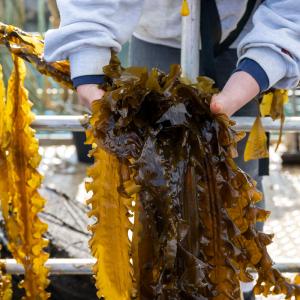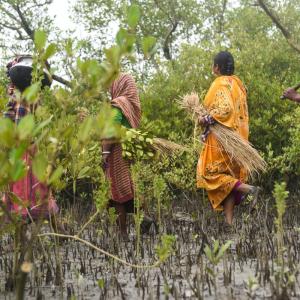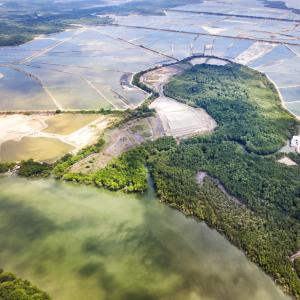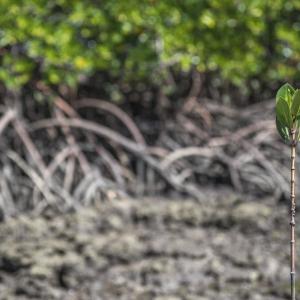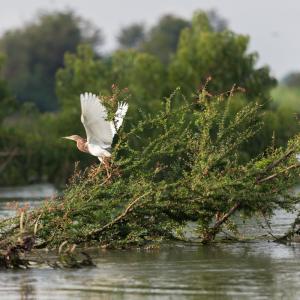Selection
In September 2022, a call was launched for Expressions of Interest (EOI) from projects with high potential to reach investment readiness and grounded in a commitment to delivering positive impacts on both people and nature.
The scope of this call specifically targeted the following ecosystem types: forests and agroforestry, regenerative agriculture, agroecology, mangroves and coastal ecosystems, and freshwater wetlands, including streams, rivers, and riparian areas.
Over 100 organisations were engaged to explain the criteria and rationale behind the concept of investment readiness. Following the submission of 32 completed EOIs, a detailed assessment of the projects was made, considering factors such as alignment with the International Union for Conservation of Nature (IUCN)’s NbS definition, strong safeguards for people and nature, and the potential for and commitment to investment readiness (see criteria below). After thorough evaluation and further shortlisting, including the submission of detailed proposals and review by WWF technical experts, six projects were invited to participate in the NbS Accelerator.
Main criteria categories used in the assessment of projects responding to the NbS Accelerator call:
- NbS definition:
Meets IUCN definition of NbS. Has clear benefits and theory of change for a net positive impact on biodiversity and people and is a place-based project.
- Safeguarding:
Complies with WWF standards on environmental and social safeguards.
- Investment readiness:
Has potential for investment readiness. Identifies revenue sources, buyers and can outline project financial model (even if at a draft stage). Also has potential for scale or replication, whether nationally or transboundary.
- Added value:
Has a good idea of how the NbS Accelerator can add value, has sufficient resource to participate and is committed to reaching investment readiness.
Support from WWF-UK
Within the NbS Accelerator, each project is receiving a tailored support package. This package combines technical assistance grant funding with pro bono support, tailored to meet the unique needs, contexts, and paths to investment readiness of each project. An overview of the main support package themes is provided in the section below, offering insights into key components important for reaching investment readiness.
By end of 2024, these projects will have progressed towards investment readiness and gained valuable insights along the way which we will be sharing with others.
Disclaimer: WWF-UK is not authorised to conduct regulated investment activities and consequently none of the information presented on the selected projects is intended to constitute investment advice, promotion of an investment opportunity or other form of regulated investment activity. While these projects were selected after rigorous assessment and we work collaboratively with them to support their progress, they are not endorsed by WWF or the partners in the Climate Solutions Partnership. The information presented on the selected projects has been provided by the projects themselves.
Main themes of NbS Accelerator support
- Monitoring and Evaluation for impacts on biodiversity, people and climate
- Environmental and Social Safeguarding, including Free Prior and Informed Consent (FPIC)
- Technical and commercial feasibility, including market assessments and pilots
- Stakeholder analysis and community engagement
- Team capacity building and mentorship
- Financial modelling and forecasting
- Legal and policy compliance reviews
- Analysis of gaps and risks for project scale and replication
- Investment business case preparation and review
- Review of contract structures and contract partners
Projects
The selected six projects span across continents, ecosystems, business models and NbS interventions.
Here we provide a snapshot of the projects:
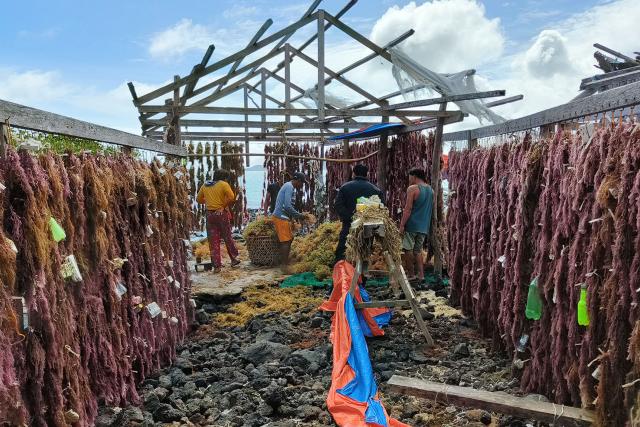
Sustainable seaweed in Palawan, The Philippines
The Sustainable Seaweed project, led by Kabang Kalikasan ng Pilipinas Foundation Inc. (WWF-Philippines), aims to boost seaweed farming capacity and capabilities within the Taytay community, in the Northeast Palawan Marine Protected Area network in the Southern Philippines.
This initiative will introduce new seaweed planting and harvesting methods, with the active participation of local fisherfolk organisations. The approach will ensure a sustainable harvest while also protecting vital ocean habitats, which increases resilience, conserves biodiversity, and sustains the well-being of the local community.
The project is a collaborative effort involving various stakeholders, including the Municipal Local Government of Taytay, the Amogues Fisherfolk Association, the Office of the Provincial Agriculture, the Bureau of Fisheries and Aquatic Resources (BFAR), and the Barangay Calawag Community.
With the support of the NbS Accelerator, WWF-Philippines aims not only to demonstrate the technical and financial feasibility of their seaweed farming approach but also to provide a training toolkit for others to replicate this successful model, spreading its benefits to more communities.
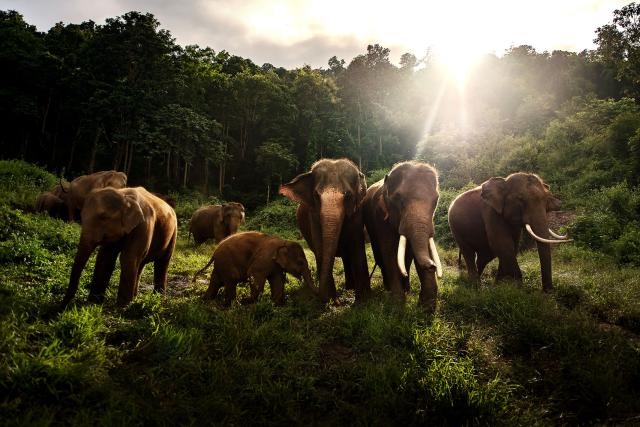
NbS for Human-Elephant Conflict in Kanchanaburi, Thailand
The NbS Accelerator is supporting the Zoological Society of London (ZSL) with enhancing the investment readiness of a project they’re leading on. The project is focused on reducing human-elephant conflict within the south-eastern Western Forest Complex (sWEFCOM) of Thailand.
In partnership with Human Elephant Voices Network (HEVN), this project aims to reduce human-elephant conflict through a sustainable financing model with the adoption of alternative farm agroforestry models that deliver human-elephant coexistence in the sWEFCOM landscape. The project team are designing an investible business model in collaboration with local stakeholders, including farmers who have the option to transition from cash crops that attract elephants (like cassava, sugar cane, and banana) to a coffee-centred agroforestry model.
The agroforestry model combines an overstorey of native tree species to provide shade for coffee plants, with supplementary cash crops cultivated underneath. The project seeks to address the core issues driving human-elephant conflict, while simultaneously improving income opportunities and land-security for smallholders (through improved land lease arrangements). Additionally, it contributes to carbon sequestration in the landscape, enhancing its ecological value.
With the support of the NbS Accelerator, ZSL will establish the optimal agroforestry model for the area and develop a clear investment proposition to support uptake across an area of 2000 hectares.
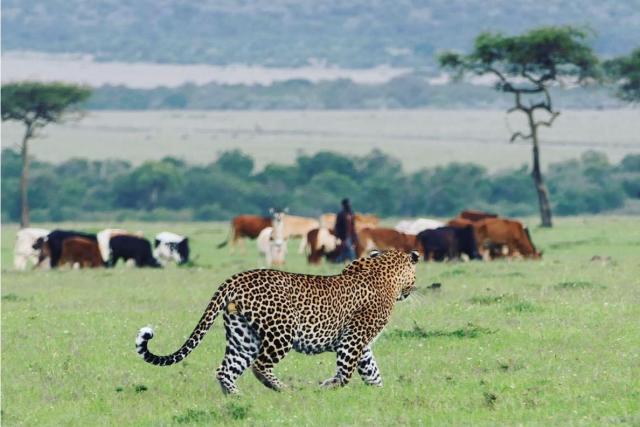
Climate Resilient Landscape Finance in the Greater Maasai Mara, Southern Kenya
The Platcorp Group is an impact investment company focused on non-bank lending businesses. Operating across Kenya, Uganda, Tanzania, South Africa, and Zambia, the group finances sustainable multi-sector solutions with a variety of microfinance products, and related services.
The Climate Resilient Landscape Finance (CRLF) project combines microfinance, private debt, and technical assistance. The goal is to address the fundamental challenges related to long-term sustainable and climate-resilient land management in and around the wildlife conservancies across Africa.
This multi-faceted landscape approach aims to facilitate free movement of wildlife, restore rangeland health and biodiversity, and enhance natural carbon sinks and climate resilience. The project team comprises Platcorp Group and Conservation International, with support from Conservation Capital and Dascot.
With support from the NbS Accelerator, the CRLF project is developing its operating and stakeholder engagement models, its monitoring and evaluation frameworks, and carrying out feasibility and baseline studies, with the aim of proving a robust and scalable funding model for nature positive activities in African conservancy areas.
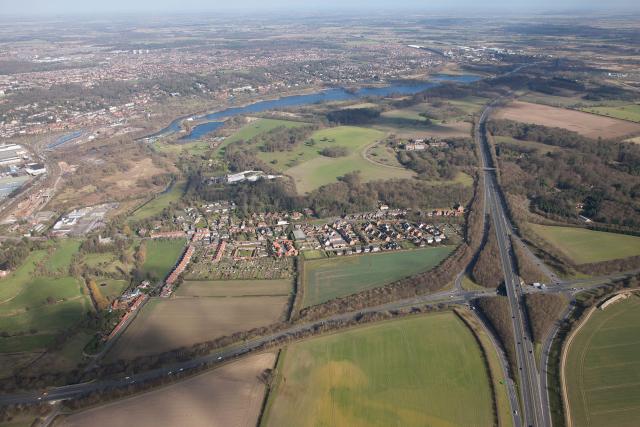
Nature for Norwich in Norfolk, UK
The Nature for Norwich project is dedicated to developing innovative solutions that serve multiple purposes: creating ecologically resilient landscapes while simultaneously diversifying farm income and mitigating the environmental impact of development. The project is jointly led by the Crown-Point Estate, Water Resources East (WRE), and Swallowtail Consulting.
The Estate covers an area of approximately 2000 hectares, with the project exploring the potential for nature-based solutions through a range of approaches. This includes habitat creation in strategic areas and on less productive land, the establishment of riparian buffers, and, potentially, to help improve water quality of the river Yare. The overarching goal is to identify optimal land use scenarios that strike a balance between positive outcomes for people and nature.
A core focus of the project is to demonstrate how to harmonise multiple revenue streams from the burgeoning nature markets in the UK. These encompass critical areas like water security, carbon sequestration, and biodiversity net-gain (BNG). The Nature for Norwich project is a testament to collaboration, uniting the efforts of the project partners (above) with the Whitlingham Charitable Trust, The Nature Conservancy, Anglian Water, Norfolk County Council, and University of East Anglia.
With the NbS Accelerator’s support, the project aims to demonstrate the technical and financial feasibility of NbS for addressing water security challenges. This endeavour forms an important part of a broader strategy aimed at driving large-scale investment in NbS in the UK.
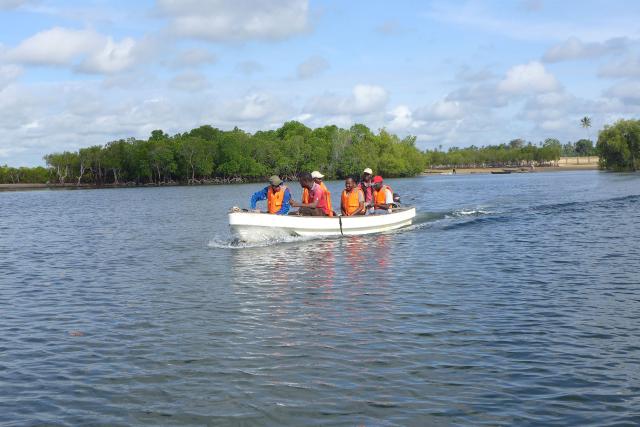
Papariko mangrove restoration in Kenya
Vlinder, an Austrian company, focuses on developing and financing community-based mangrove restoration projects in Africa and Asia, with a strong commitment to long-term sustainability. Vlinder works with local communities, supporting with upskilling and job opportunities for people who rely on mangroves for their livelihoods.
Vlinder is partnering with Umita Limited and the Kenya Forest Service to begin restoration across 1500 hectares of degraded mangrove areas in Kwale, Kilifi, and Tana River Counties in Kenya. Through continuous plantation maintenance, protection, and monitoring, spanning the 30-year project period, Papariko establishes new habitats for biodiversity, creates additional income sources for local communities, and contributes to climate change mitigation through carbon sequestration.
With support from the NbS Accelerator, the Papariko project is developing its operating model to combine commercial robustness with community livelihood development, its stakeholder engagement models, its monitoring and evaluation frameworks, and carrying out carbon, biodiversity, and social baseline studies. Ultimately, this will help Vlinder to scale impact and replicate the approach in new regions.
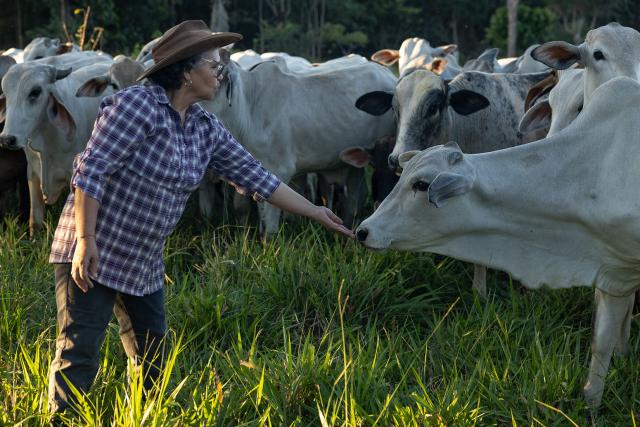
Regenerative cattle ranching in Madre de Dios, Peru
The Regenerative Cattle Ranching project, led by WWF-Peru, has a clear goal: to encourage, and scale up, regenerative cattle ranching practices in Madre de Dios. This effort is part of a broader landscape-level regional programme. Under this project, ranchers will receive support to implement sustainable practices, such as better grassland management, organic methods, silvopastoral systems, and freshwater conservation and management techniques. These changes will allow cattle to graze naturally, improve soil health, and promote biodiversity.
For local ranchers, this means lower input costs and higher yields, which can help reduce the pressure driving forest conversion and deforestation. WWF-Peru will work closely with ranchers and regional experts to validate the revenue model and make a strong case for local bank agri-lending, further advancing this important project.
The NbS Accelerator will support the project to develop a strong business case for the model, establish robust monitoring techniques, and deepen engagement with participating ranchers.
